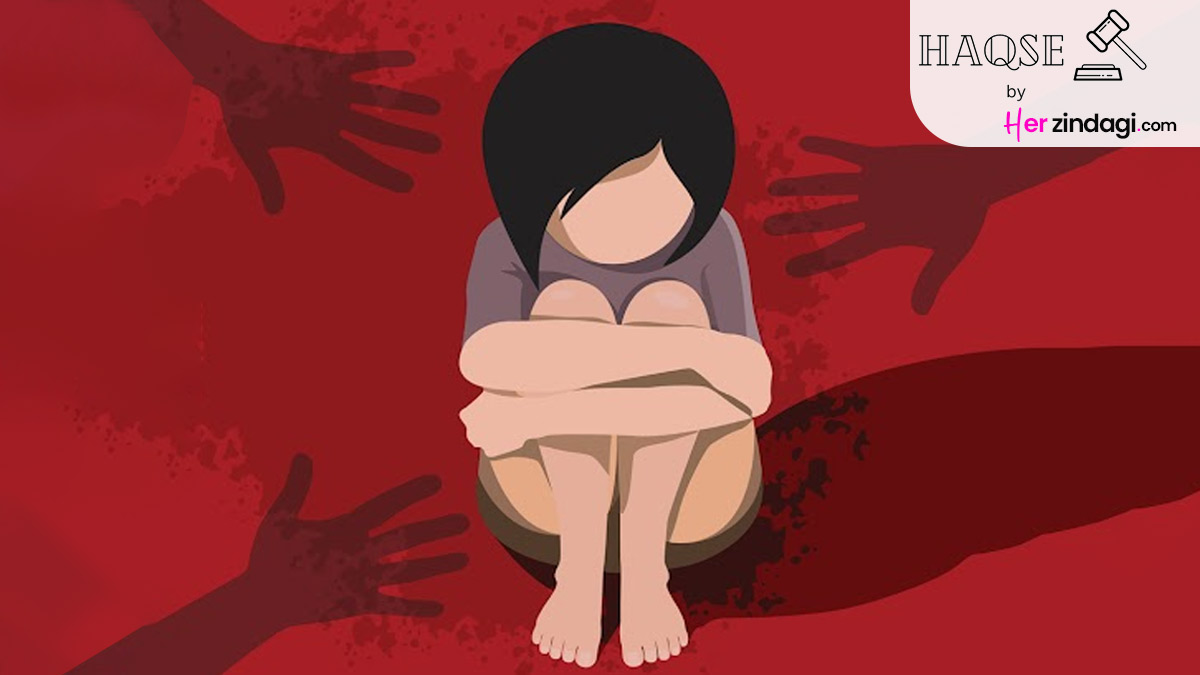
Last year according to a report by a news daily, 60 percent of the crimes against women were rape and molestation. Over a decade after the horrifying Nirbhaya rape case, nothing seems to have changed. Nirbhaya's assault and murder in the national capital sent shivers down our spine and as the country together battled for justice, we believed we had a silver lining. However, today when we see the rising number of sexual assault cases in the country, there seems to be no change for women in India.
While a lot of women find the courage to report the assault, others keep mum even years after being subjected to the heinous crime. One reason that contributes to it is the lack of unawareness around their rights. With our new series HaqSe, we have been bringing you explainers on women rights. This time, we will be untangling rights against sexual assault with Adv. Shikhani Shah Engineer, Criminal Lawyer, Bombay High Court.
What Is Sexual Assault?
The legal expert defining sexual assault said, "Sexual abuse is a form of sexual violence where a person uses power or coercion to force you into unwanted sexual activity. Other forms of sexual violence are sexual assault, such as rape and sexual harassment, which is sexual behaviour toward you that is unwelcome or offensive."

"Being kissed or touched without your consent or being made, by coercion or force, to touch or kiss someone, an organ or an object being inserted into the mouth, vagina or anus without consent, being kissed or touched without your consent or being made, by coercion or force, catcalling, whistles that make you feel uncomfortable or objectified, being spoken to in a sexual way that you find offensive or degrading, forced or coerced to have sex without protection from sexually transmitted diseases are some examples of sexual assault," she added.
How To Identify Sexual Assault?

The expert shared that the easiest way to identify an act of sexual assault is that it happens without consent. The act takes away the victim's decision-making power. There are times when a victim of sexual violence might not speak up about being subjected to sexual assault, however, some signs can help their family and friends identify it. There will be changes in the physical, behavioural and emotional signs of the victim after such an act.
Don't Miss: HaqSe: Women Rights Against Sexual Harassment, Explained
How To Report Sexual Assault?
Since sexual assault can happen anywhere and anytime, the reporting process might vary. Advocate Shikhani Shah said, "If it’s at workplace, the first step to reporting an incident of sexual harassment is to approach the Internal Complaint Committee (ICC) of the organization. Each organization employing above ten people is required to form such a committee. In case the complaint arises from an unorganised sector, in case there is no IC in the particular workplace, or if the complaint is against the employer, it can be made to the Local Complaints Commissioner, required to be set up in every district by the Government. One can also complain to the District Magistrate of appropriate jurisdiction."
Don't Miss: Raping The Daughters: This Repulsive Reality Is Sadly Neither Offending Us Nor Our Culture
The legal expert further added that one can also complain through an online portal created by the Ministry of Women and Child Development in 2013. Complaints via She-Box are filed directly to the ministry. Post making the complaint, one can also check the updates on the complaint status. After the complaint reaches the She-box, it is directly forwarded to the ICC of the concerned ministry.
"One can even file an online complaint with the National Commission for Women. If a woman wants to complain at the nearest police station, she can file an FIR (First Information Report) with a police officer under Section 154 of the Code of Criminal Procedure."
Also watch this video
Herzindagi video
Our aim is to provide accurate, safe and expert verified information through our articles and social media handles. The remedies, advice and tips mentioned here are for general information only. Please consult your expert before trying any kind of health, beauty, life hacks or astrology related tips. For any feedback or complaint, contact us at [email protected].